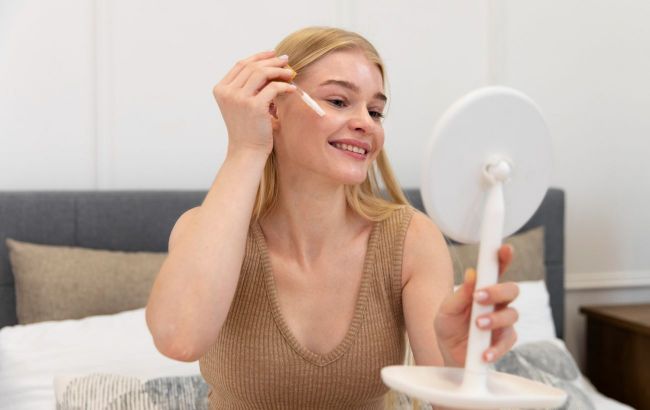What is retinol and how to replace it: Dermatologist's advice
 Illustrative photo (Freepik)
Illustrative photo (Freepik)
Retinol is the gold standard in anti-aging skincare. It is used to stimulate cellular turnover and boost collagen production, helping to combat wrinkles, according to the HuffPost.
What is retinol?
Retinol is a form of vitamin A that is widely used in skincare and is known for its anti-aging properties. It helps to stimulate cellular turnover and boost collagen production, which can reduce the appearance of fine lines and wrinkles, giving your skin a fresher and firmer look.
Although it starts working in your cells immediately, it may take several weeks before you notice an improvement in your appearance.
Dermatologist Jeannette Graf mentioned that if you have sensitive skin prone to eczema or rosacea, it’s better to opt for natural or organic skincare options, as there are alternatives to retinol.
Bakuchiol
Bakuchiol, a cosmetic ingredient that has recently gained popularity, is often referred to as "plant-based retinol." It's a great alternative for those who can't use retinol for various reasons. Bakuchiol smooths fine lines, wrinkles, and pigmentation while being rich in antioxidants, preventing oxidative damage, and showing anti-inflammatory effects.
Rambutan
Certified dermatologist and surgeon Dendy Engelman shared that rambutan is an excellent alternative to retinol. This tropical fruit offers many skincare benefits, including promoting cell renewal and collagen production. It also fights free radical damage and protects the skin from oxidative stress without causing irritation.
The expert explained that this natural ingredient will act similarly to retinol and offer the same benefits, as it contains antioxidants that also help nourish your skin.
Peptides
Peptides are short chains of amino acids that serve as building blocks for certain proteins essential to the skin, like collagen and elastin. By signaling the skin to produce more collagen, peptides can help reduce the appearance of fine lines and wrinkles. Unlike retinol, peptides don’t promote cellular turnover but rather focus on strengthening the skin’s structure.
Niacinamide
This form of vitamin B can be synthesized or derived from natural sources. Niacinamide increases collagen production, which helps reduce fine lines and wrinkles. It is generally well-tolerated by all skin types and is known for its oil-regulating and anti-inflammatory properties. Moreover, it’s an excellent option for balancing sebum production and minimizing the appearance of acne.
Alpha-Hydroxy Acids (AHA)
AHAs improve skin texture and tone, hydrate, and give the complexion a more radiant and smooth appearance. Unlike retinol, which promotes cellular turnover, AHAs focus on exfoliating and enhancing the clarity of the skin’s surface.
Vitamin C
Vitamin C is the most common antioxidant in human skin. It has been proven to brighten unwanted pigmentation, stimulate collagen synthesis, offer antioxidant properties, and protect against skin cancer. This vitamin provides immune support, neutralizes free radicals that cause damage throughout the body, and is essential for collagen production, one of the proteins that help maintain youthful skin.

